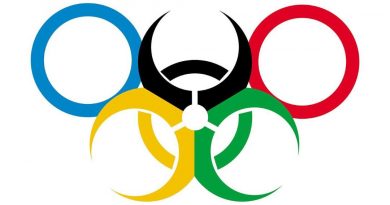FG approves $1.4bn for rehabilitation of Warri, Kaduna refineries; FEC approves 20% minority stakes in Dangote petroleum
The Federal Executive Council has approved contracts for the rehabilitation of Warri and Kaduna refineries at a cost of $1.4 billion.
The Minister of State for Petroleum, Timipre Sylva, briefed State House correspondents after the virtual Federal Executive Council meeting chaired by Vice President Yemi Osinbajo on Wednesday at the Presidential Villa, Abuja.
The breakdown according to Sylva shows that $897 million is earmarked for the Warri refinery and $586 million for Kaduna refinery and are to be executed in three phases.
The FEC also approved the $2.76 billion acquisition of 20 percent minority stake by the NNPC in Dangote Petroleum and Petrochemical Refinery.
“The FEC, today, approved the award of contract for the rehabilitation of Warri and Kaduna Refineries at the combined total sum of 1.5 billion dollars– 897. 67 million dollars for Warri Refinery and 586. 9 million dollars for Kaduna Refinery.
“The Executive Council also approved the acquisition of 20 per cent minority stakes by the NNPC in the Dangote Petroleum and Petro-Chemical Refineries in the sum of 2.76 billion dollars.
“The completion of the rehabilitation of the Warri and Kaduna Refineries is going to be in three phases.
“ First phase is within 21 months; in 23 months, phase 2 will be completed and in 33 months, the full rehabilitation will be completed.
“Work has already commenced in Port Harcourt; already the first 15 per cent of the contract sum has been paid to the contractor and contractor has fully mobilized to site,’’ he said.
Nigeria has four refineries – including two in Port Harcourt – but all have been struggling to function optimally as the country continues to import petroleum products.
The rehabilitation is expected to turn around the refineries and set them up to meet national oil demands.
In June, Managing Director of NNPC, the national oil company, Mr Mele Kyari, said the rehabilitation of the refineries, in conjunction with private efforts such as the Dangote Refinery, will transform Nigeria into a “hub of petroleum products and supply”.
“It’s going to change the dynamics of petroleum supply globally in the sense that the flow is coming from Europe today and it is going to be reversed to some other direction,” he said.
“We will be the supplier for West Africa legitimately and also many other parts of the world.”
The rehabilitation’s success can also have a positive impact on the street-level price of petroleum products such as petrol.
He said that the council also discussed the need to give periodic updates on the projects hinting that there will soon be an inspection of work in the Port Harcourt Refinery.




